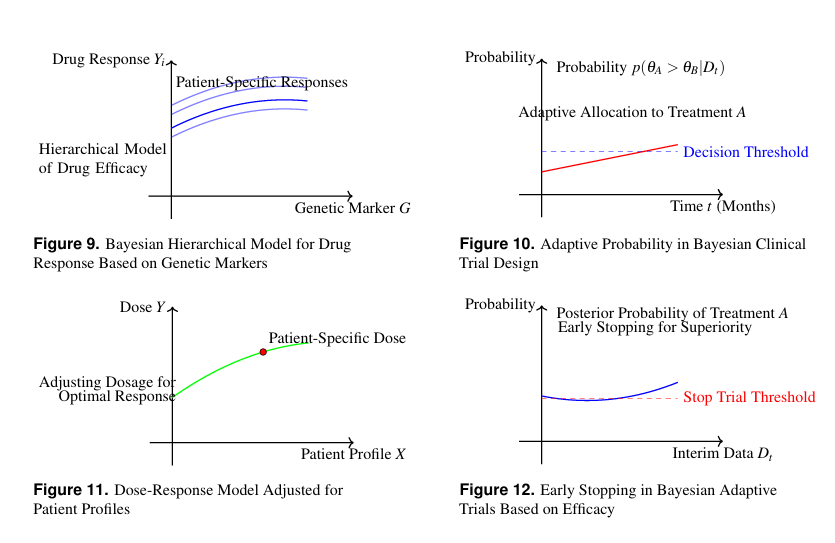Applications of Bayesian Statistics in Healthcare for Improving Predictive Modeling, Decision-Making, and Adaptive Personalized Medicine
Ramya Avula
Business Information Developer Consultant, Carelon Research
https://orcid.org/0009-0006-8476-8544
Keywords: Bayesian methods, Clinical decision support systems, Evidence synthesis, Personalized medicine, Predictive modeling, Uncertainty quantification
Abstract
This study investigates the application of Bayesian statistical methods in healthcare and their roles in predictive modeling, clinical decision-making, and personalized medicine. Bayesian approaches have probabilistic framework that allows for the integration of prior knowledge, iterative updating with new data, and quantification of uncertainty. This makes them effective for the heterogeneous nature of healthcare data. Unlike frequentist methods, which often assume fixed parameter estimates and use hypothesis testing, Bayesian methods treat parameters as random variables with probability distributions for model refinement as data accumulates. The study addresses several applications: predictive modeling and risk assessment, clinical decision support systems (CDSS), personalized medicine, dynamic Bayesian updating, handling of missing data, evidence synthesis, Bayesian networks for disease diagnosis, health economics, and adaptive clinical trials. In predictive modeling, Bayesian methods enable more precise risk assessments by incorporating patient-specific data, historical clinical information, and real-time updates into posterior distributions. Bayesian models in CDSS can compute posterior probabilities for different diagnostic and therapeutic options for aiding in clinical decisions under uncertainty by providing probabilistic assessments that adapt to new information. In personalized medicine, Bayesian hierarchical models and multi-level structures allow for the inclusion of genetic information and patient history for individualized treatment regimens. The study also explores Bayesian adaptive methods in real-time patient monitoring, where models adjust as new data from wearables and other sources are received. Applications of Bayesian approaches in handling missing data, integrating diverse evidence sources, and the design of adaptive clinical trials are discussed. This study aims to show how Bayesian methods can improve healthcare analytics, facilitate evidence-based decision-making, and optimize patient care.


